I have been going through Introduction to Algorithms and am trying to implement the pseudo-code presented for merge-sort using C programming language.
This is the pseudo-code presented for the MERGE procedure:
While I understand this procedure, I am struggling to implement in C when arriving at the 3rd line. My compiler is giving an error (and rightly so after C99) expression must have a constant value.
Error is occurring on line 3 of the pseudo-code or at int L[n1]; in code posted below
How can I create an array which holds n1 and n2 values which are constantly changing from one iteration to the next? Any suggestions would be appreciated.
I also came across https://www.geeksforgeeks.org/merge-sort/ to see how it might be done, and the website is using the same syntax as I am, but without any compiler warnings. Is this because of an older compiler version (C99?) or am I missing something from my end?
My code is below:
/* C program for Merge Sort */
#include<stdlib.h>
#include<stdio.h>
#define infinite 9999; //Used for sentinels
void MERGE(A, p, q, r);
void printArray(Arr, size);
void MERGE_SORT(A, p, r);
int main(void)
{
int A[] = { 12, 11, 13, 5, 6, 7, 2, 9 };
int arr_size = sizeof(A) / sizeof(A[0]);
MERGE_SORT(A, 1, arr_size);
printf("\nSorted array is \n");
printArray(A, arr_size);
return 0;
}
void MERGE(int A[], int p, int q, int r)
{
int i = 0;
int j =0;
int n1 = q - p + 1; //Computing length of sub-array 1
int n2 = r - q; //Computing length of sub-array 2
int L[n1]; //Creating Left array
int R[n2]; //Creating Right array
for (int i = 1; i < n1; i++) {
L[i] = A[p + i - 1];
}
for (int j = 1; j < n2; j++) {
L[j] = A[q + j];
}
L[n1] = 99; //Placing Ssentinel at the end of array
R[n2] = 99;
i = 1;
j = 1;
/*Prior to the first iteration k = p, so the subarray is empty.
Both L[i] and R[j] are the smallest elements of their arrays and have not
been copied back to A*/
for (int k = p; k < r; k++) {
if (L[i] <= R[j]) {
A[k] = L[i];
i++;
}
else if (A[k] = L[i])
j++;
}
}
void MERGE_SORT(int A[], int p, int r)
{
//During first iteration p = 1 & r = 8
if (p < r) {
int q = (p + r) / 2;
MERGE_SORT(A, p, q);
MERGE_SORT(A, q + 1, r);
MERGE(A, p, q, r);
}
}
EDIT
Code for MERGE updated as follows thanks to suggestions from answer and comments below. Even though the code below presents no syntax or run-time errors, the output is still not correct. This is out of the scope of the question, however. Another question was asked here: Writing Merge Sort Pseudo-Code Procedure in C
void MERGE(int A[], int p, int q, int r)
{
int i = 0;
int j =0;
int n1 = q - p + 1;
int n2 = r - q;
int *L = malloc((n1+1) * sizeof(*L)); //Creating Left array
int *R = malloc((n2+1) * sizeof(*R)); //Creating Right array
for (int i = 1; i < n1; i++) {
L[i] = A[p + i - 1];
}
for (int j = 1; j < n2; j++) {
L[j] = A[q + j];
}
L[n1] = 99; //<-- Some modification must be carried out here to allocate
R[n2] = 99; //`99` to the end of array
i = 1;
j = 1;
for (int k = p; k < r; k++) {
if (L[i] <= R[j]) {
A[k] = L[i];
i++;
}
else if (A[k] == L[i])
j++;
}
free(L);
free(R); //Freeing both pointers at the end of iteration
}
